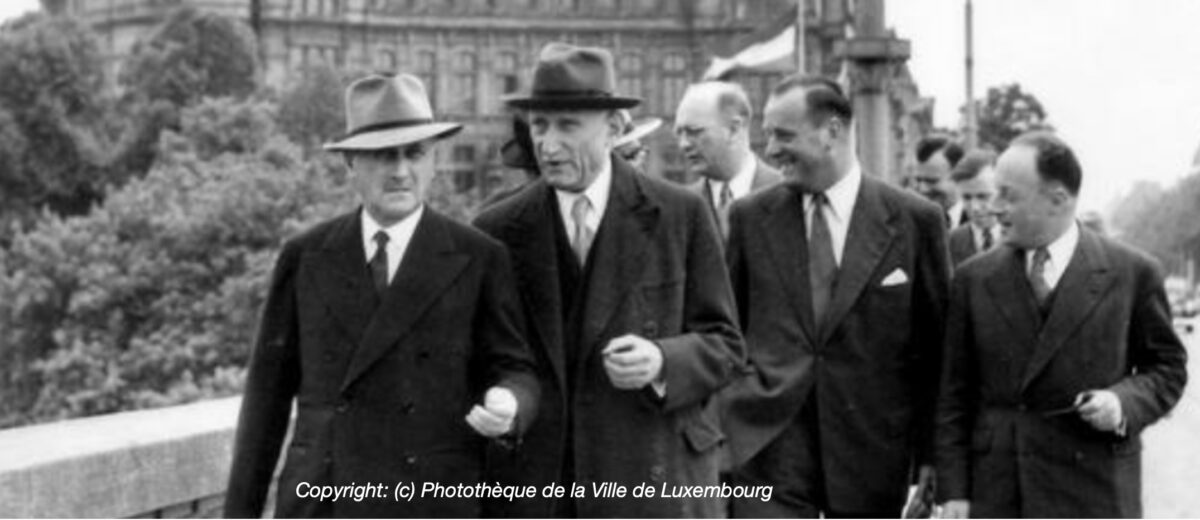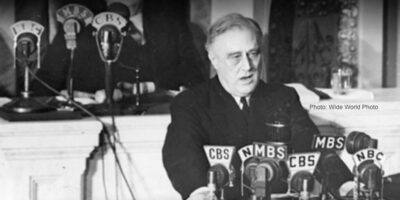Wanted: saints in suits. In Brussels. In every European capital. In cities everywhere.
“The saints of the future will be saints dressed in suits.” These are the words written by Henri Eschbach to his 25-year-old friend Robert Schuman on hearing that the young lawyer had decided to give up his promising legal career and enter a monastery.
When Schuman’s mother was killed by an out of control horse-and-carriage, he felt his life turned upside down. In sorrow and grief, he wrote to his best friend Henri Eschbach telling him of his decision to consecrate his life to God and become a monk.
Eschbach questioned Schuman’s plan. He urged him that society needed ‘lay apostles’, and wrote: “I cannot imagine a better apostle than you.” He told his friend that he would be better able to do good as a layman, adding that society needed ‘saints in suits’.
This advice was a turning point for Schuman who would spend the rest of his life in a suit, first as a lawyer and then as a politician. As the French Foreign Minister, Schuman initiated the process of European integration, proposing the European Coal and Steel Community, which over time has led to the European Union – including the European Parliament.
The very existence of the European Parliament for which we are now electing members is itself due to Schuman’s own choice to be a saint in a suit.
Dirty business
What did Eschbach mean by ‘saints in suits’? He meant that believers should take their place in the public square, in those professions where practioners wore suits rather than cassocks and robes.
Politics has sometimes been considered a dirty business, out of bounds for Christians. Many think that young people serious about consecrating their lives in service to God should therefore consider entering ‘the ministry’, if not the monastery. Escapism from the wicked world rather than engagement with God’s created order too often is the message young people perceive.
Opportunities for training to enter ‘the ministry’ are plenty. Seminaries and theological colleges are ubiquitous. But where can a young person sensing a call to serve God in politics, diplomacy or international relations be equipped with a theological understanding of these fields, about which the Bible has much to say? Opportunities are few and far between. Public theology and political theology are neglected fields in Christian education. That in itself sends a message that public service is inferior to church ministry.
Yet all politics begins with our beliefs about God, humanity and society. While church and state can rightly be separated as divinely-ordained distinct spheres, faith and politics can never be estranged. Our politics, whatever our religious convictions, is faith-based. What we believe to be the nature of humanity, the root of the human problem and the remedy to right the wrongs in society shapes our politics.
As we go to the voting booths this week to decide who will represent us in the European Parliament (as with any other election for that matter), we need to vote for candidates who understand both the calling and responsibility of Christians to be light, salt and leaven in society ; candidates who understand the need to promote a genuine pluralism in which the Christian minority is included as part of the population; who realise that their task is to seek the common good of all, not to impose a theocracy or revive a modern Constantinianism.
Candidates with answers
We need candidates with clear answers to the questions, Who are we? – what does being human mean? Where are we? – how do we as humans fit into the big scheme of things as caretakers? What’s wrong with the world? – why is life so often dysfunctional?
We need candidates who recognise the idolatrous nature of the ‘saviours’ our political ideologies propose for the root problems of society – like statism, capitalism, individualism, militarism, conservatism or nationalism.
We need candidates who grasp that freedom in Europe and elsewhere comes not from pursuing self-interest and personal happiness, looking after our own sort and keeping ‘the other’ at bay, or pursuing success in careers and financial gain; but rather from seeking to love our Creator in the first place and secondly our neighbour – even when he/she is our enemy!
We need candidates who realise that freedom under God means seeking to become the persons we were created to be, not seeking freedom from God to act autonomously and just do what we want.
We need candidates who understand that responsible promotion of family as the cornerstone of society is necessary for a sustainable future with a birth rate that rejuvenates our ageing society.
In short, Europe needs saints in suits.
Vote wisely this week.
P.S. Our master degree programme in Missional Leadership and Europe Studies is one possibility for young people looking to be equipped for service in the public square. Write to me for details.
Till next week,




Excellent
Excellent piece of writing – totally agree.